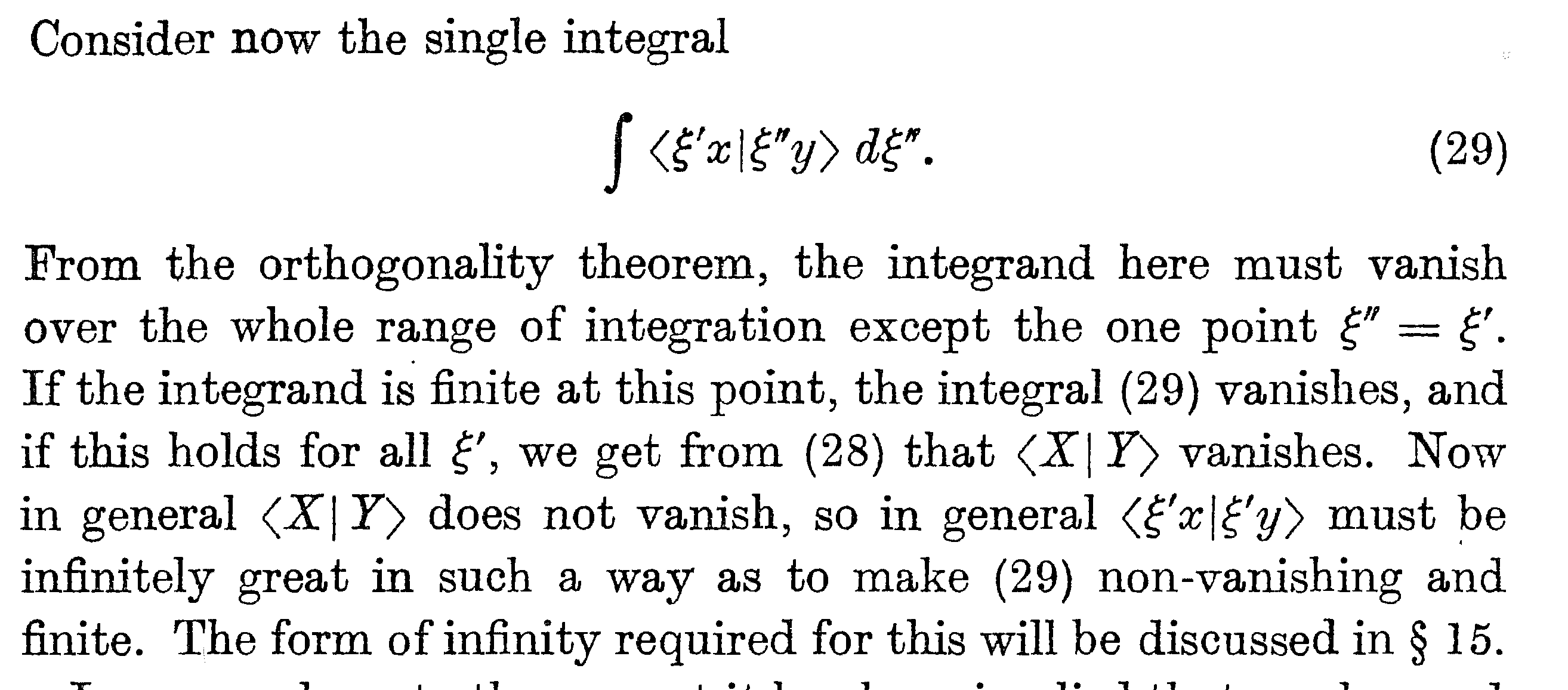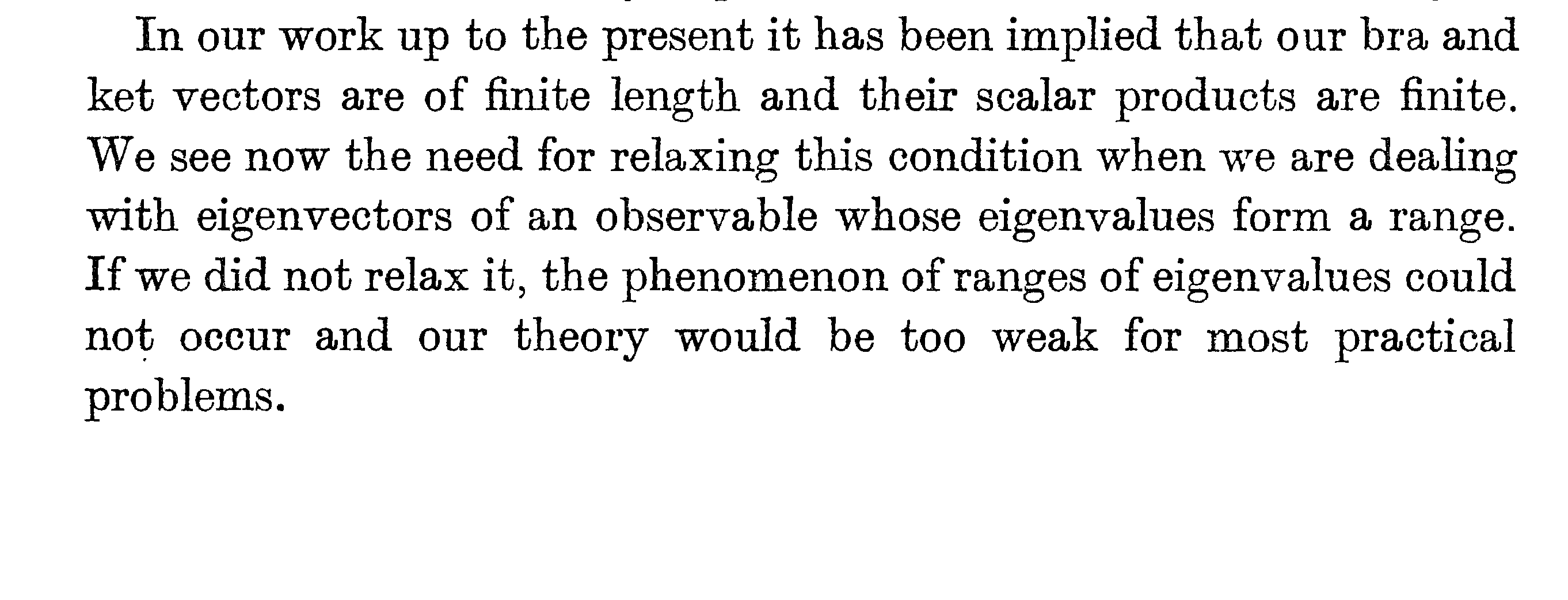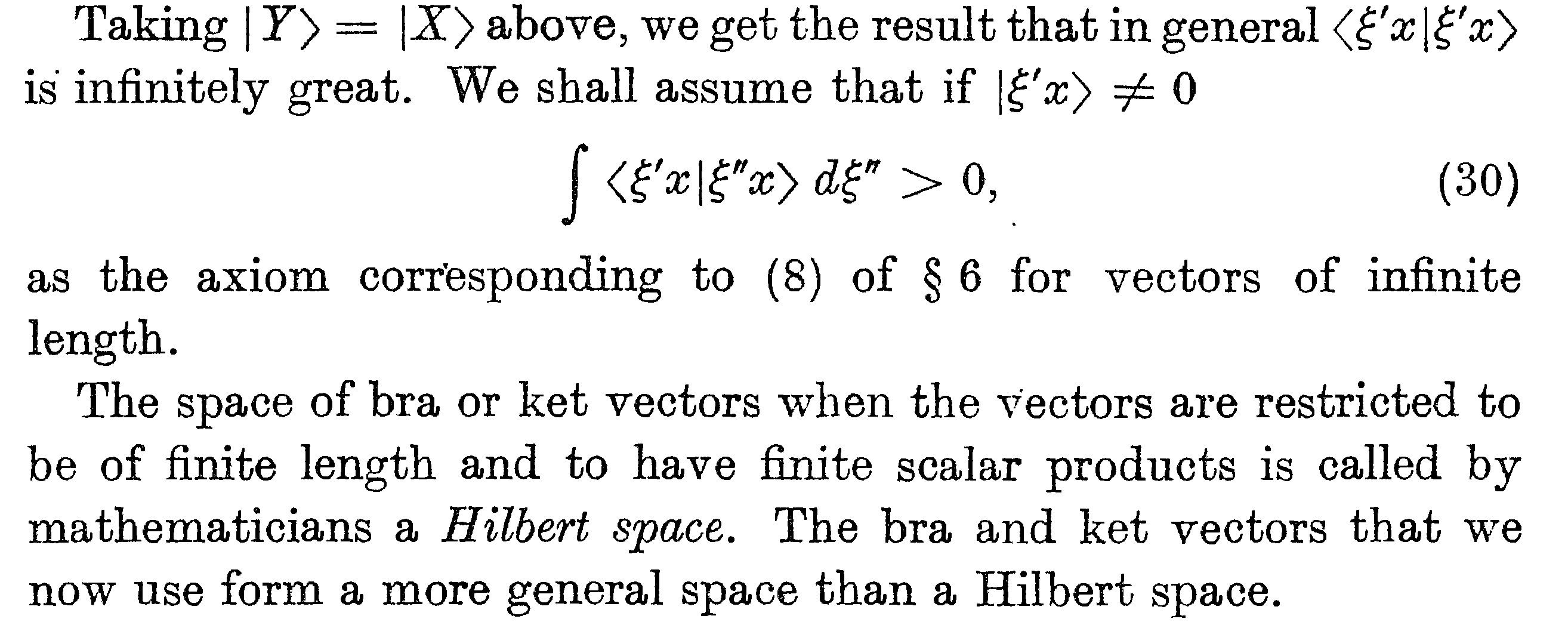I'm currently reading Principles of Quantum Mechanics by Paul Dirac, specifically the 4th edition of 1958. There is a passage I'm having trouble to understand, I'll put the text here. For reference it's in the chapter of Dynamical variables and observables, section 10.
If I understood correctly, he wants to expand a ket vector with the eigenstates of an osservable with continuous spectrum as
$$ |P)= \int |\xi'x)d\xi' $$$$ |X)= \int |\xi'x)d\xi' $$
the problems is that if we calculate the scalar product of two ket vector we have
$$ (P|Q)=\int \int (\xi'x|\xi''y) d\xi'd\xi'' $$$$ (X|Y)=\int \int (\xi'x|\xi''y) d\xi'd\xi'' $$
He than evaluates
$$ \int (\xi'x|\xi''y)d\xi' $$
and says that for the orthogonalorthogonality theorem the integrand $(\xi'x|\xi''y)$ should be zero everywhere except when $\xi'=\xi''$, But this means that the integral is zero. The only way to have a non vanishing and finite integral is to have $(\xi'x|\xi'y)$ infintely great.
I get lost at this part
First of all, I know that the Hilbert space can be a vector space of infinite dimensione, so why he says "the space of vectors when the vectors are of finite length and finite scalar product is called Hilbert Space"?
Secondly, I've always read that one of the postulates of QM says that the bra and ket vectors belongs to an Hilbert space, so why he says "The vectors we now use form a more general space than a Hilbert Space"?
and third, can someone explain to me what is equation (30)? What does that mean?



